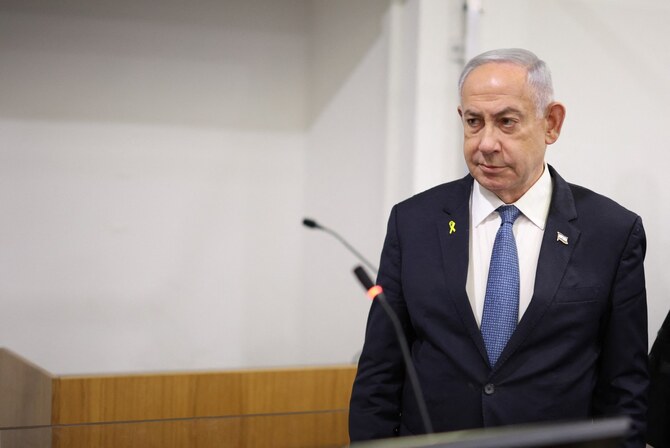LONDON: Israeli Prime Minister Benjamin Netanyahu has ordered stricter military censorship on media coverage of ongoing prisoner swap negotiations with Hamas, Israeli newspaper Israel Hayom reported on Sunday.
Citing political sources, the report revealed that Netanyahu’s office instructed the military censor to impose tighter restrictions than usual on information related to the potential deal.
A statement from Netanyahu’s office emphasized the importance of confidentiality, saying: “The prime minister has instructed ministers and security officials to fully adhere to information security protocols during security discussions.”
The decision reflects cautious optimism in Tel Aviv that a breakthrough might be reached by the Jewish festival of Hanukkah, starting on Dec. 25.
However, no official details of the talks have been disclosed due to concerns that public debate or leaks could jeopardize the negotiations.
“There is significant compartmentalization and also a heavy blackout compared to previous times over the past year — so that we can succeed in bringing about a deal,” a political source was quoted as saying.
Despite months of war, previous efforts to negotiate with Hamas have repeatedly failed.
Critics have accused Netanyahu and his coalition partners of undermining potential agreements to prolong the conflict, allegedly for political gain.
Netanyahu’s personal legal battles have also fueled skepticism.
The prime minister, currently standing trial for bribery, fraud, and breach of trust, has faced allegations that the ongoing war serves as a distraction from his legal woes.
His trial, which has already been delayed due to the war, is expected to extend well into next year, with potential appeals likely to dominate Israeli politics for the foreseeable future.




























